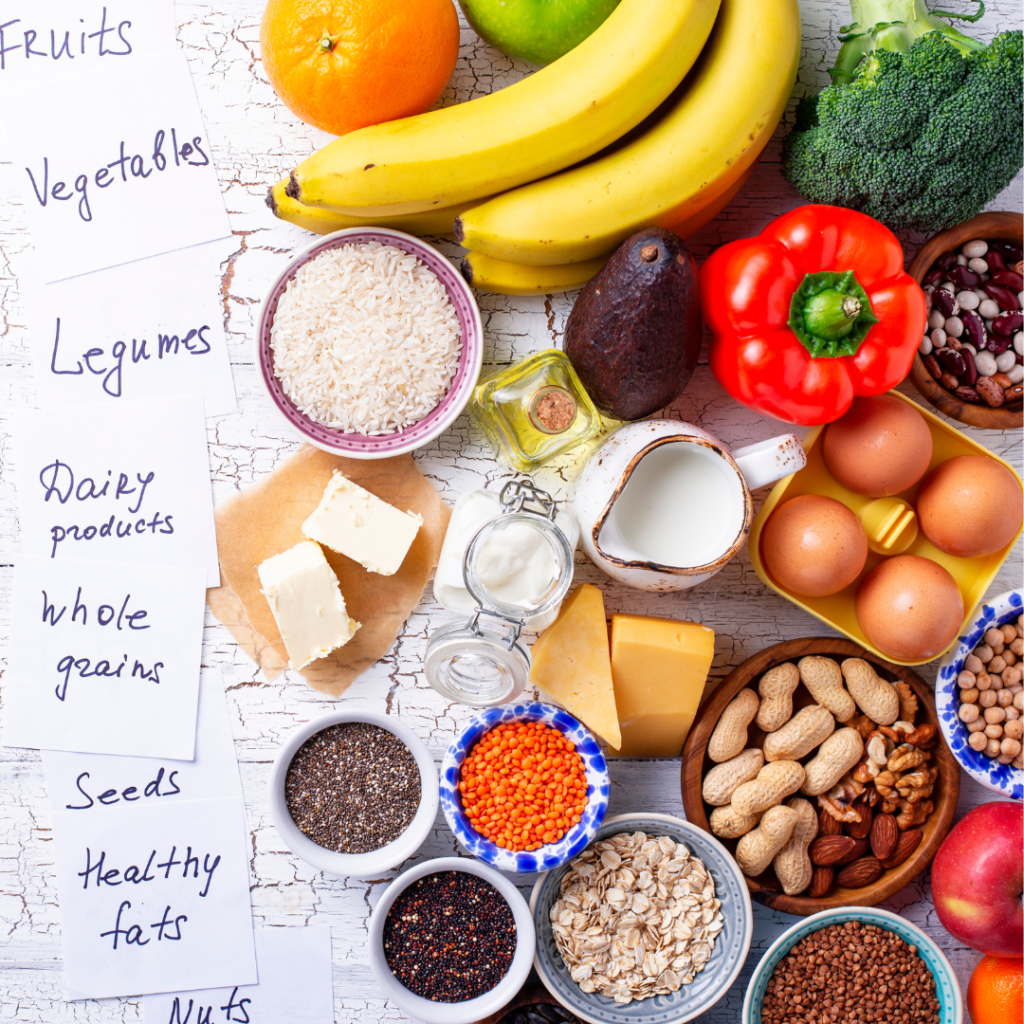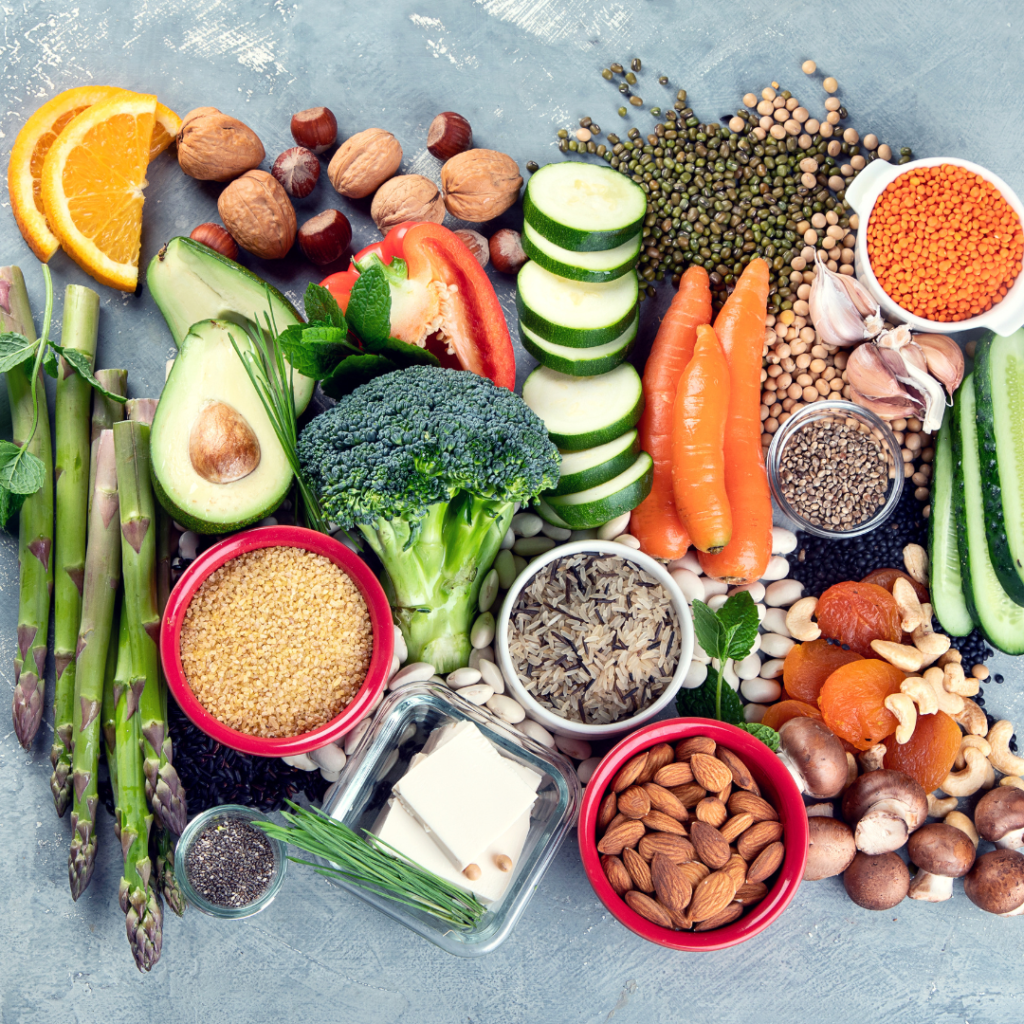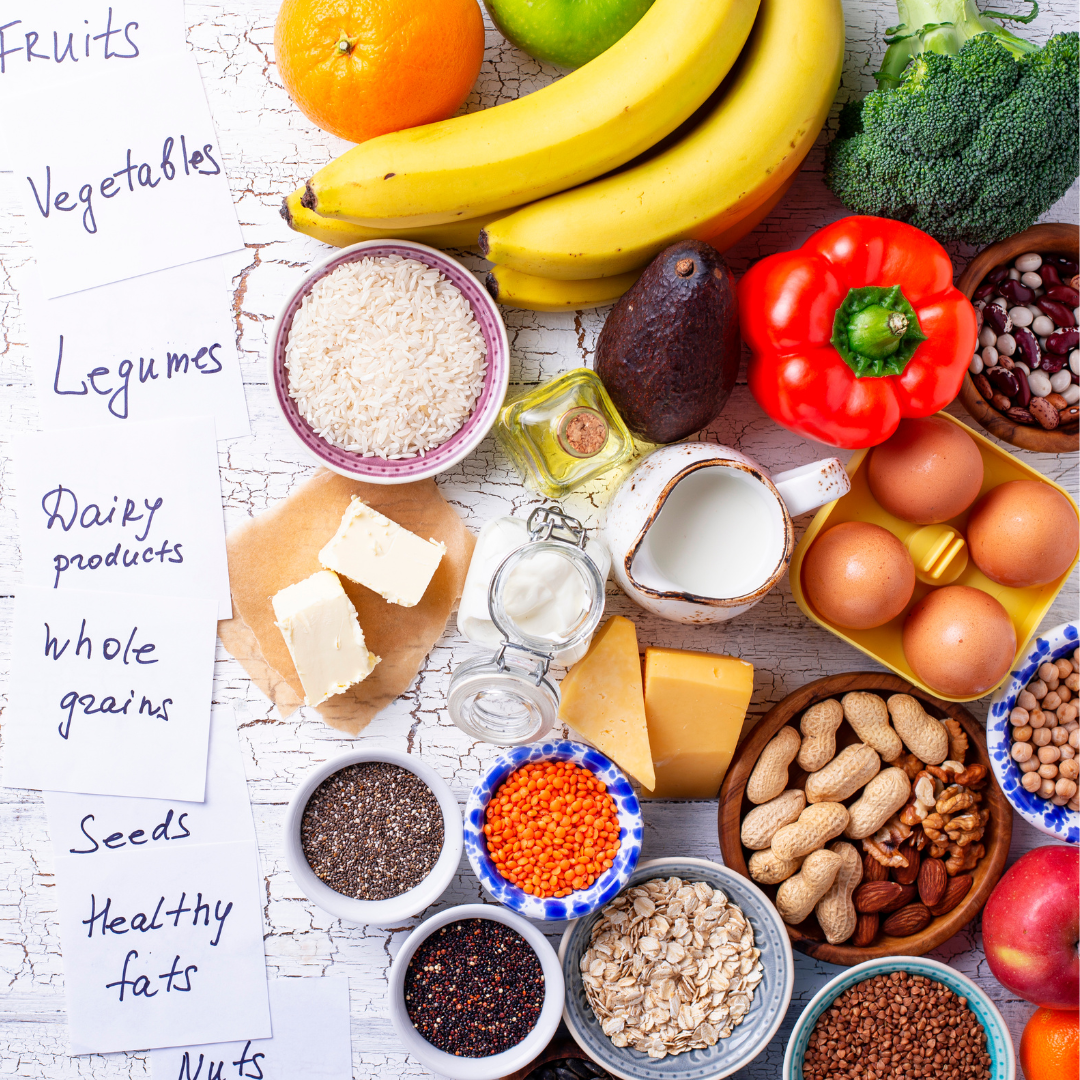Vegetarian, Vegan & Whole Food Plant-Based Diets – Pros & Cons
I’ve been on the vegan bandwagon on and off for a LONG time. It all started in 2000 when my boyfriend was diagnosed with testicular cancer. The oncologist recommended avoiding dairy and reducing meat consumption. Adding blueberries, turmeric, and tofu to his daily diet was also advised. I was shocked to discover the significant impact diet had on his cancer, but it became the start for my health journey. Over the past 22 years, I’ve done my best to stay healthy, and it’s been quite a ride.
When I met my husband in 2003, he was vegan, and I thought it was so weird. I never considered it until my kids were born with allergies. While breastfeeding, I found out they were allergic to dairy, beef, and eggs. Eliminating these foods from my diet resulted in a significant boost in energy. It just made sense to continue. Now, we are a flexitarian family—mostly (99%) plant-based at home, and outside the home (at restaurants, while traveling, and at friends’ houses), we adapt to what is available. I’ve found so much peace in this new lifestyle. My kids are learning to eat healthily, care for the planet, and be mindful of animals. However, they also understand that I won’t judge them if, at a restaurant, they choose a burger.
Pros of a Vegetarian Diet

- Heart Health: Vegetarian diets are often associated with lower cholesterol levels, blood pressure, and a reduced risk of heart disease.
- Weight Management: Many people find it easier to maintain a healthy weight on a vegetarian diet due to the focus on plant-based, nutrient-dense foods.
- Rich in Nutrients: Vegetarian diets can be rich in essential nutrients such as fiber, vitamins, and antioxidants found in fruits, vegetables, whole grains, and legumes.
- Digestive Health: The high fiber content in plant-based foods supports digestive health and can help prevent constipation.
- Environmental Impact: Adopting a vegetarian diet is generally considered more environmentally sustainable, as it often requires fewer resources and produces lower greenhouse gas emissions compared to meat-based diets.
Pros of a Vegan Diet

- Heart Health: Vegan diets are associated with lower cholesterol levels, blood pressure, and a reduced risk of heart disease, similar to vegetarian diets.
- Weight Management: A well-planned vegan diet, rich in whole foods, can contribute to weight management due to the emphasis on plant-based, nutrient-dense options.
- Cancer Prevention: Some studies suggest that a vegan diet may be linked to a lower risk of certain types of cancer, although more research is needed in this area.
- Rich in Antioxidants: Vegan diets, particularly those focused on whole plant foods, provide a wide array of antioxidants that can help protect cells from damage.
- Environmental Sustainability: Choosing a vegan lifestyle is often viewed as an environmentally sustainable choice, as it generally requires fewer resources and has a lower ecological footprint compared to diets rich in animal products.
- Ethical Considerations: Many people adopt a vegan diet for ethical reasons, as it avoids the exploitation of animals for food production.
- Digestive Health: The fiber-rich nature of a vegan diet promotes digestive health and can aid in preventing constipation.
- Anti-Inflammatory Benefits: Plant-based diets are often associated with anti-inflammatory effects, potentially reducing the risk of chronic inflammatory conditions.
- Blood Sugar Control: Some studies suggest that a vegan diet may help improve blood sugar control, which can be beneficial for individuals with diabetes.
- Increased Energy Levels: Individuals on a well-balanced vegan diet often report increased energy levels and improved overall well-being.
Pros of a Plant-Based Diet

- Nutrient Density: Whole plant foods are rich in essential nutrients, including vitamins, minerals, antioxidants, and fiber, contributing to overall health and well-being.
- Heart Health: A whole food vegan diet has been associated with lower cholesterol levels, reduced blood pressure, and a decreased risk of heart disease.
- Weight Management: Whole plant foods are often lower in calories and higher in fiber, promoting satiety and supporting weight management.
- Improved Digestive Health: The high fiber content of whole plant foods supports digestive health, helps prevent constipation, and fosters a healthy gut microbiome.
- Anti-Inflammatory Properties: Many whole plant foods possess anti-inflammatory properties, potentially reducing the risk of chronic inflammatory conditions.
- Cancer Prevention: Some studies suggest that a whole food vegan diet may be linked to a lower risk of certain types of cancer due to the abundance of protective compounds found in plant foods.
- Blood Sugar Control: Whole plant foods, with their complex carbohydrates and fiber, can contribute to better blood sugar control, beneficial for individuals with diabetes.
- Improved Energy Levels: The nutrient-rich nature of a whole food vegan diet can lead to increased energy levels and overall vitality.
- Ethical and Environmental Considerations: Choosing a whole food vegan diet aligns with ethical considerations by avoiding the exploitation of animals and is generally more environmentally sustainable due to lower resource use and reduced greenhouse gas emissions.
- Disease Prevention: A whole food vegan diet has been associated with a lower risk of various chronic diseases, including type 2 diabetes, hypertension, and certain cancers.
CONS
- Nutrient Considerations: While whole plant foods are nutrient-dense, certain nutrients like vitamin B12, iron, zinc, and omega-3 fatty acids may be more challenging to obtain in sufficient amounts solely from plant sources. Individuals may need to pay extra attention to their nutrient intake and consider supplements or fortified foods which are easy to find.
- Social Challenges: Following a diet different from the SAD (Standard American Diet) can pose social challenges, especially in situations where vegetarian & vegan options are limited or when dining with others who follow different dietary preferences. This can lead to feelings of isolation or difficulty finding suitable food choices in certain social settings. Joining plant-based groups can help.
- Initial Transition Difficulties: Some individuals may find it challenging to transition to a whole food plant-based diet, particularly if it involves a significant shift from their previous eating habits. Adapting to new cooking methods and flavors may take time.
- Meal Planning and Preparation: Planning and preparing whole food plant-based meals may require more effort and time compared to convenience foods. This can be a potential barrier for individuals with busy lifestyles. Meal planning is the KEY to making this transition as easy as possible.
- Availability and Accessibility: Access to a variety of fresh, whole plant foods may be limited in certain geographic locations or during specific seasons. This can affect the practicality of maintaining a diverse whole food plant-based diet.
Primarily, incorporating more plant-based foods into your diet benefits not only your body but also the planet and animals. Do you have to commit to being 100% plant-based? No! Take it gradually and remember to focus on adding rather than eliminating any foods.
Good luck on you plant-food journey and let me know if you need any help. As a Holistic Nutritionist my expertise lies in helping women on their quest to lose weight and live healthier lives through nutrient-dense, low-fat, high-fiber, sugar-free recipes that make nutrition enjoyable. If you want some scientific studies, click here.

